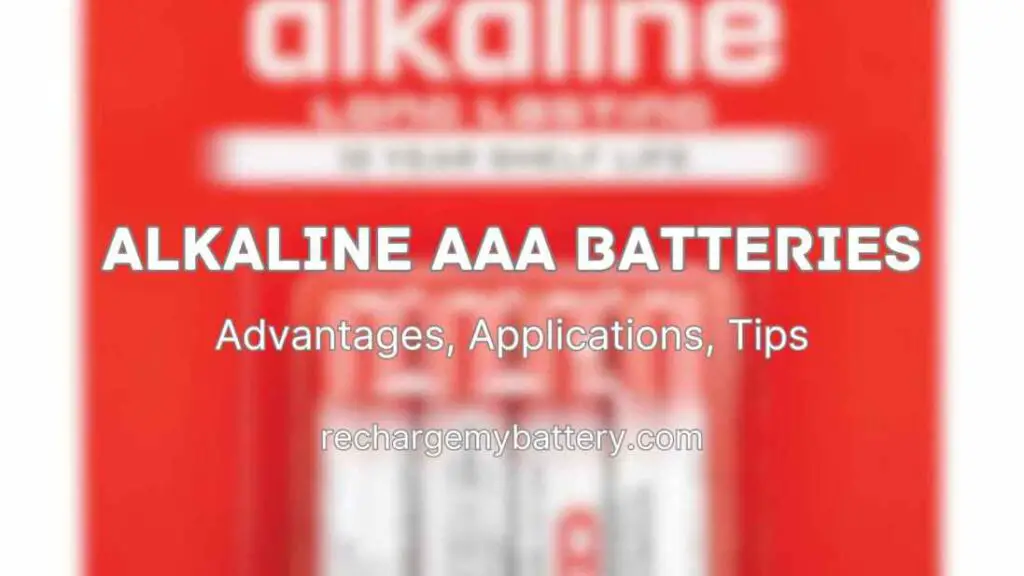This article aims to explore the capacity of alkaline AAA batteries, shedding light on their performance and benefits.
What are Alkaline AAA Batteries?
Alkaline AAA batteries are compact power sources commonly used in a variety of electronic devices, including remote controls, toys, flashlights, and small appliances. They are part of the alkaline battery family, known for their long-lasting power and reliability. AAA refers to the battery’s size classification, with AAA being smaller than AA batteries.
Understanding Battery Capacity
Battery capacity refers to the total amount of charge a battery can hold, usually measured in milliampere-hours (mAh). It indicates how long a battery can power a device before requiring replacement or recharging. The capacity of alkaline AAA batteries typically ranges from around 800mAh to 1200mAh, depending on the brand and quality.
Factors Affecting Alkaline AAA Battery Capacity
Several factors influence the capacity of alkaline AAA batteries:
- Usage Patterns: Battery capacity can vary based on the specific device and its power requirements. Devices with high power demands may drain batteries faster.
- Temperature: Extreme temperatures, both hot and cold, can affect battery performance. It is recommended to store and use alkaline AAA batteries in a moderate temperature range for optimal results.
- Discharge Rate: Different devices have varying discharge rates. Some devices draw power more slowly, allowing batteries to last longer, while others consume energy rapidly.
- Storage Conditions: Proper storage is crucial for maintaining battery capacity. Avoid storing batteries in humid or excessively hot environments.
Tips to Maximize Battery Performance
To ensure the best performance and longevity of alkaline AAA batteries, consider the following tips:
1. Remove Unused Batteries
If a device will not be used for an extended period, remove the batteries to prevent potential leakage or corrosion.
2. Don’t Mix Old and New Batteries
Avoid mixing batteries with different charge levels. It is best to use batteries with similar levels of remaining capacity for optimal performance.
3. Store Batteries Properly
Keep alkaline AAA batteries in a cool, dry place away from direct sunlight. Storing them in their original packaging or a dedicated battery organizer helps protect them from damage.
4. Avoid Extreme Temperatures
Extreme heat or cold can affect battery performance. Keep batteries away from direct heat sources or freezing temperatures.
Advantages of Alkaline AAA Batteries
Alkaline AAA batteries offer several advantages over other battery types:
- High Energy Density: Alkaline batteries provide a high energy density, meaning they offer a significant amount of power relative to their size.
- Long Shelf Life: Alkaline AAA batteries have a long shelf life and can retain their charge for several years when stored properly.
- Wide Availability: These batteries are readily available in most stores, making them easily accessible when replacements are needed.
- Cost-Effective: Alkaline AAA batteries are generally affordable and offer good value for their performance and reliability.
Comparing Alkaline AAA Batteries with Other Types
While alkaline AAA batteries are popular, it’s worth considering their alternatives:
1. Lithium Batteries
Lithium batteries have a higher energy density and a longer lifespan than alkaline batteries. They are ideal for high-drain devices but are generally more expensive.
2. Rechargeable Batteries
Rechargeable AAA batteries, such as nickel-metal hydride (NiMH), can be a cost-effective and eco-friendly option for devices that require frequent battery replacement. They have a lower capacity but can be recharged multiple times.
Conclusion
Alkaline AAA batteries offer a reliable and convenient power source for various electronic devices. With their decent capacity, wide availability, and affordability, they are a popular choice for everyday use. By understanding the factors affecting battery capacity and implementing proper usage and storage practices, users can maximize the performance and lifespan of alkaline AAA batteries. Thank you for reading.

